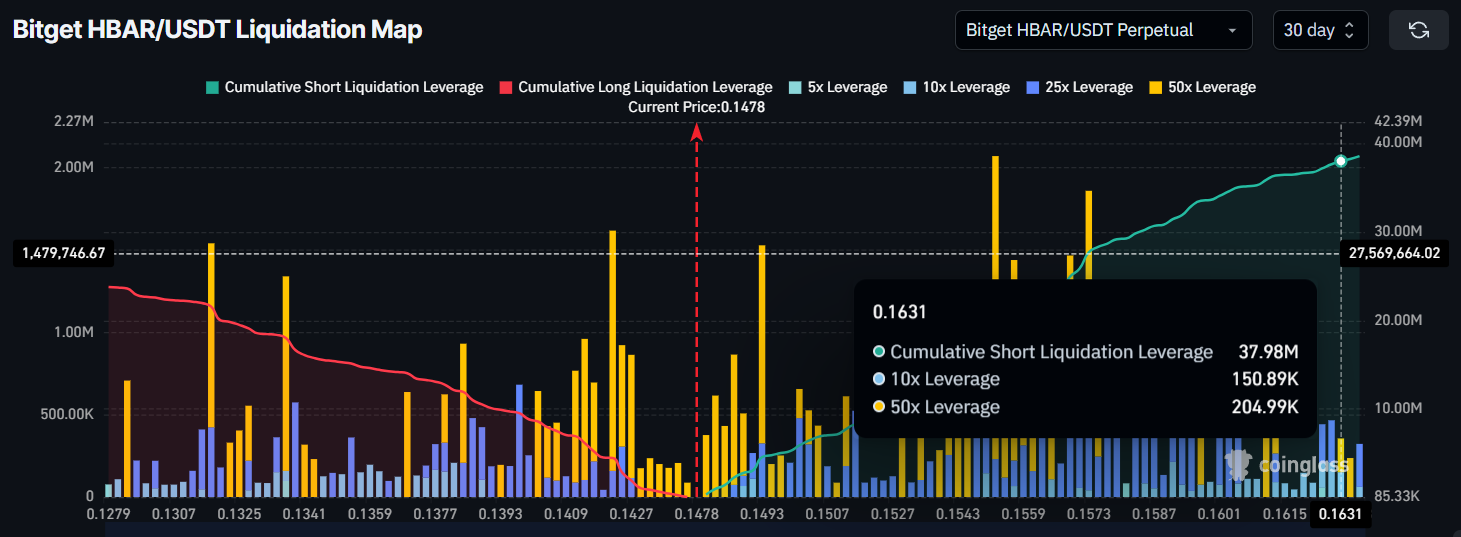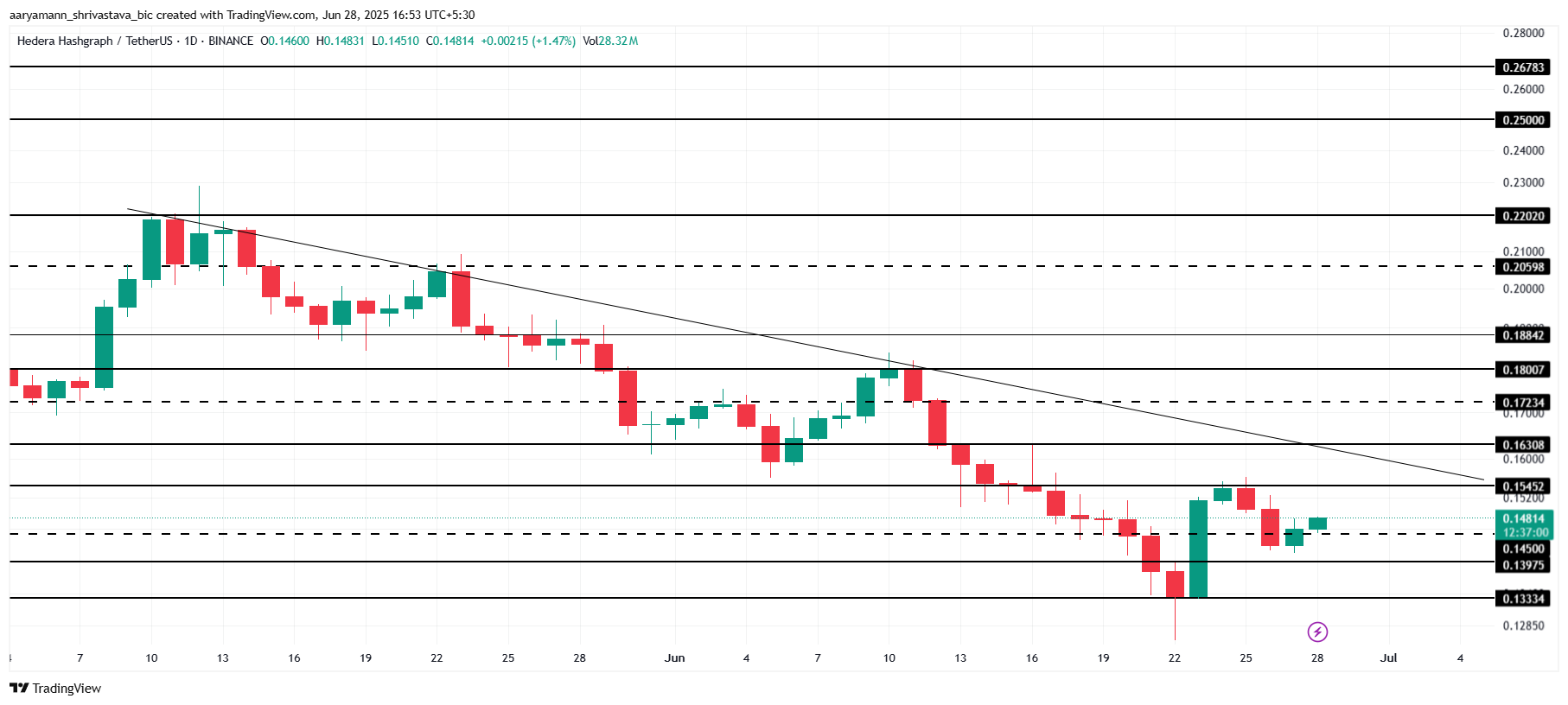HBAR has experienced considerable volatility over the past month, struggling to recover recent losses and break the month-and-a-half-long downtrend.
Despite these challenges, the altcoin remains in a critical position as traders remain optimistic about its potential breakout. However, a failure to break key resistance levels could lead to further price declines.
HBAR Traders Are Bullish
Throughout this month, traders have shown strong bullish sentiment toward HBAR. The funding rate has remained positive consistently, indicating a dominance of long contracts in the market.
This suggests that traders are confident about a potential price recovery and are positioning themselves to capitalize on a rise in value. The consistent optimism reflects a belief that HBAR can rebound from its current downtrend.
Also, the positive funding rate shows that more investors are willing to place bets on the future of altcoin despite the ongoing challenges.

The macro momentum for HBAR reveals that short traders could face substantial losses if the price rises. The liquidation map indicates that approximately $38 million worth of short contracts could be liquidated if HBAR breaks its current downtrend and rises to $0.163.
This would have a significant impact on the market, potentially fueling further buying momentum.
Short traders have been betting on continued price declines, but a breakout above key resistance levels could force them to exit their positions. This would create additional buying pressure, supporting the potential for a larger upward move.

HBAR Price Is Awaiting A Boost
At the time of writing, HBAR is trading at $0.148, just under the critical resistance level of $0.154. The altcoin is looking to breach this resistance and break the downtrend line that has been holding it back.
A successful push past this level would be a key milestone in HBAR’s recovery.
The factors supporting a potential breakout indicate that HBAR could rise to $0.163 if it manages to flip $0.154 into support. Reaching this level could trigger the liquidation of short positions, further driving the price up.
This could help HBAR gain momentum and recover from its recent downtrend.

However, if the broader market turns bearish, HBAR’s price could fall to $0.139. Losing this support would be a bearish signal, potentially driving the price further down to $0.133.
Such a decline would invalidate the bullish thesis and shift the market outlook back toward the bears.
The post Hedera (HBAR) Price Action Could Lead to $38 Million in Losses appeared first on BeInCrypto.






